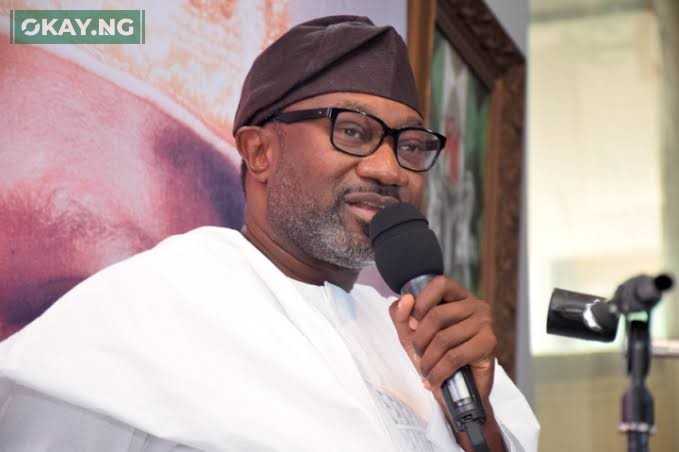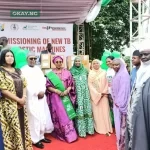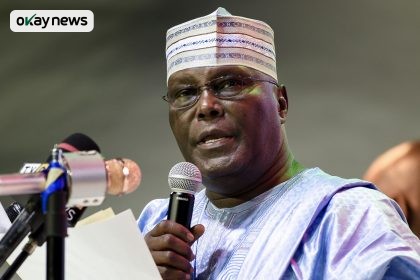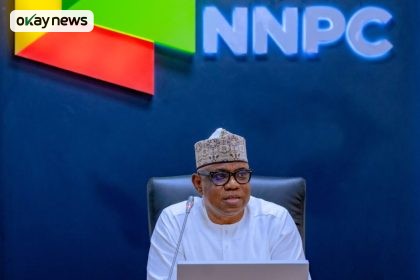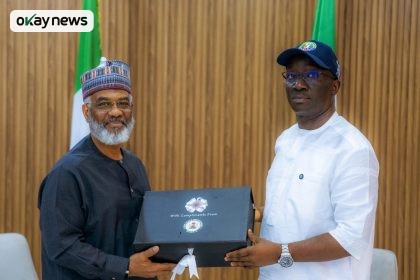Nigerian billionaire and oil magnate, Femi Otedola, has revealed a dramatic confrontation with former President Olusegun Obasanjo in 2004 over the deregulation of diesel importation—a decision that would later redefine Nigeria’s petroleum industry.
This revelation is contained in his forthcoming memoir, “Making It Big: Lessons from a Life in Business,” which is expected to be officially released on August 18, 2025, under FO Books.
Otedola, who was the chief executive of Zenon Petroleum at the time, detailed how his advocacy for deregulation triggered a volatile backlash from the presidency following claims of nationwide diesel scarcity. According to the business tycoon, Obasanjo had approved the policy based on assurances that the private sector could adequately supply diesel across the country without the Nigerian National Petroleum Corporation (NNPC).
“When President Obasanjo deregulated diesel in 2004, Zenon took an unassailable lead in the market,” Otedola recalled. However, according to him, opponents of the policy, many of whom had vested interests in maintaining government subsidies, quickly launched a campaign to discredit the new regime.
“My opponents’ reaction was to tell the president that we’d turned the market upside down (and that the) economy was about to be brought down because there was no diesel, and Obasanjo was mad at me because he’d sought and received assurances from us that NNPC’s exit from diesel importation wouldn’t affect supply,” he wrote in the memoir. “My critics then fanned the flames by telling him there was no diesel in the country, that trucks couldn’t move and that industries were shutting down.”
In what appears to be one of the most heated moments of his career, Otedola described receiving an irate call from the president at 2am.
“The President called me at 2am, shouting through the phone. ‘You’re a stupid boy! God will punish you! You persuaded me to deregulate diesel, and now there’s no diesel in the country!’ He was livid,” Otedola stated.
The following day, he rushed to the Presidential Villa in Abuja, only to be confronted again by Obasanjo, who continued his verbal tirade.
“As soon as Obasanjo saw me, he flew into a rage again. ‘What kind of rubbish is this? What kind of nonsense is this?’ He was right in my face, screaming at the top of his lungs,” Otedola narrated. “I allowed him to cool down, and when he stopped talking, I tried to explain the situation. ‘Baba, they’re lying to you. It’s all lies. I have six ships waiting to discharge big supplies of diesel.’”
The oil magnate maintained that he was a victim of sabotage and misinformation by those who stood to lose from deregulation—particularly elements within the NNPC.
“I was even paying demurrage. I told the president that I was the victim of competitors’ backbiting,” he said. “See what they come up with next… You’ll see that it’s me who’s telling you the truth.”
okay.ng reports that to prove the availability of diesel and counteract the circulating misinformation, Otedola proposed a bold media campaign.
“To set the record straight, I told the President that we should start placing adverts on the front pages of national newspapers indicating diesel availability and prices. This would not only inform the public but would also prevent panic buying and dispel rumours of scarcity.”
Otedola was certain that the orchestrated misinformation campaign was being spearheaded by vested interests within the state-run oil apparatus.
“I knew it was people in NNPC – the state monopoly, in their now-teetering positions of power – who were against deregulation – who’d been telling him these lies. They wanted to continue to import, and rake in the subsidy money,” he explained.
Despite the drama, Otedola noted that Obasanjo eventually saw through the political manipulation and reaffirmed his trust.
“Obasanjo was a determined and robust president. Jealous people did not easily sway him. Once he made up his mind that someone was trustworthy and genuine, as he seemed to do about me that day, he stopped listening to the naysayers.”
The deregulation of diesel in 2004 made it the first petroleum product to be fully liberalised in Nigeria, effectively ending the rent-seeking culture built around subsidy regimes and giving rise to a more competitive private sector-driven fuel market.
The account provides not only insight into the challenges of market liberalisation but also the personal toll of navigating high-stakes policy reforms in an economy riddled with entrenched interests and state control.


